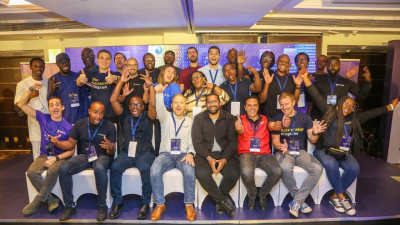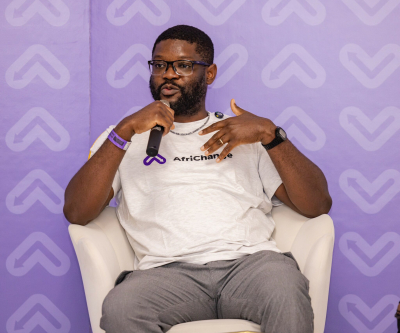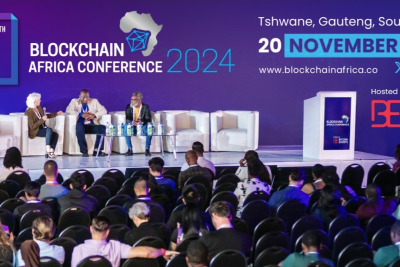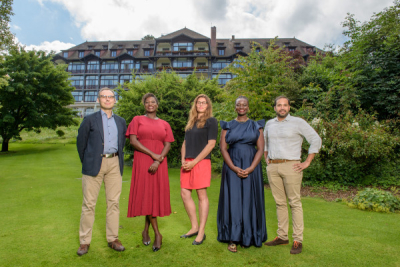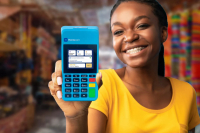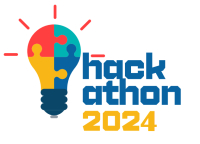
Brief_simple (285)
The London Internet Exchange (LINX) will launch LINX Accra, a new interconnection platform at PAIX Data Centres, in early Q1 2025.
This expansion responds to rising demand in Ghana’s networking community and will improve local and international internet traffic through faster, more reliable, and cost-effective connections.
LINX Accra will reduce latency and boost connectivity for businesses and consumers. The platform supports local ISPs while positioning Accra as a key internet gateway for West Africa.
Beyond Limits, an advocate for digital innovation, in partnership with the U.S. Consulate General Lagos, has unveiled the Beyond Limits Fellowship for Founders Cohort 3.0.
The 12-week program, running from January to March 2025, will equip 30 early-stage Nigerian startups with skills, mentorship, and resources to build scalable tech ventures.
Applications, open until November 29, 2024, will select startups from across Nigeria. The top three startups will receive $10,000 in resources to fuel growth.
Visa has announced investments in four African fintech startups from its Visa Africa Fintech Accelerator, underscoring its commitment to financial inclusion and Africa’s digital ecosystem.
The investments focus on startups addressing Africa’s unique challenges including: Workpay, a Kenyan HR and payroll platform operating across 35 countries; Oze, a Ghana-based digital platform providing SMEs with record-keeping tools and an ML-powered credit scoring system; OkHi from Nigeria, a smart addressing solution to verify and locate physical addresses; and ORDA, a Nigerian restaurant management software supporting over 1,500 restaurants with inventory and order processing tools.
The Central Bank of Nigeria (CBN) has awarded Currenzo, a Nigerian subsidiary of global financial platform Africhange, an International Money Transfer Operator (IMTO) license. This license allows Currenzo to process remittances directly into Nigeria without intermediaries, offering faster and more affordable transfers for Nigerians locally and abroad.
With this approval, Currenzo can now partner directly with Nigerian banks to streamline payments and reduce costs. The company has already partnered with three Nigerian banks and is actively seeking a settlement partner to secure transactions.
By using blockchain technology, Africhange aims to offer low-cost, efficient cross-border transfers, particularly for the African diaspora.
Bitcoin Events is organizing The Blockchain Africa Conference 2024. This 10th edition aims to showcase advancements in Africa’s blockchain and cryptocurrency sectors.
The event will convene blockchain developers, investors, and industry leaders at the CSIR International Convention Centre in Pretoria on November 20, 2024.
Speakers include Charles Hoskinson, Founder of Cardano, Ernest Mbenkum, CEO of Interstellar Inc., and Stafford Masie, former CEO of Google Africa. A special fireside chat will feature blockchain pioneers Elizabeth Rossiello and Ernest Mbenkum reflecting on a decade of industry growth.
Pan-African venture capital firm Janngo Capital has finalized its second fund at $78 million, it announced on October 30. This further advances its commitment to early-stage tech startups across Africa.
Janngo distinguishes itself as a "gender-equal" investor, with 56% of its portfolio companies being women-led, given that Africa has the highest rate of female entrepreneurship globally, yet receives minimal VC backing for female founders.
The firm’s investments target diverse sectors including healthcare, logistics, financial services, retail, agritech, mobility, and the creator economy.
Nigeria-based fintech Moniepoint has raised $110 million in funding from investors, including Google, to expand digital payments and banking solutions across Africa. The investment, announced Tuesday, October 29, supports Moniepoint's goal to become a key player in Africa's financial ecosystem.
Existing investors Development Partners International and Lightrock led the round, with Google’s Africa Investment Fund and Verod Capital joining as new backers.
Moniepoint will use the capital to grow its business across Africa and build a unified platform for digital payments, banking, FX, credit, and business tools.
The Zambian government has formalized the Information and Communication Technology Association of Zambia (ICTAZ) Statutory Instrument Act of 2018, introducing vital regulations to establish professional standards and enhance cybersecurity in the ICT sector.
The new regulations mandate the registration of ICT professionals across Zambia. It aims to foster an accountable ICT sector, with standards professionals must adhere to as Zambia builds a digitally secure and ethical economy.
Google has teamed up with ALX South Africa to host Sub-Saharan Africa’s first Hardware Hackathon on 1 November 2024 at ALX’s Braamfontein hub.
The event will bring 20 selected learners from ALX’s talent pool to tackle real-world challenges in server hardware, Linux, and networking, simulating the work of Google Data Center Technicians.
Participants will compete for prizes and potential job opportunities with Google. The partnership, part of Google’s broader outreach strategy, aims to upskill young African talent and prepare them for tech careers.
South African digital transformation company Obami's Tech in Kind initiative is offering up to R1 million ($62,300) in pro bono digital services to South African non-profits and SMEs.
Selected organizations will receive up to R100,000 each in digital transformation services, including access to content digitization, course and program design.
Applications are open until October 31, 2024, and winners will also receive expert guidance and ongoing technical support to enhance their digital operations and efficiency.
More...
Tech company Yango Group and Zindi, which connects organizations with data scientists, will host the 2024 Lusaka Mobility Prediction Hackathon on October 26. The competition will focus on predicting traffic patterns affected by weather.
The event will bring together data scientists and tech enthusiasts in Zambia to tackle real-world urban mobility challenges.
The hackathon aims to inspire Zambia's data science community by offering prizes to the top three participants. It is part of Yango’s commitment to driving urban solutions through data and technology.
Nigerian startups focused on sustainability and innovation are invited to apply for the Sterling Bank Green Innovation Challenge.
The initiative offers NGN2 million (US$1,200) grants for cleantech and social enterprise ventures and a NGN20 million (US$12.2 million) facility for agriculture businesses.
Applications are open until October 20. Applicants must have operated for at least two years, offer locally developed solutions, and have a scale-up plan.
Zepz, formerly WorldRemit, has secured $267 million to expand across Africa and other key markets. The funding round was led by Accel with participation from Leapfrog, TCV, Coller Capital, and a $20 million investment from the International Financial Corporation (IFC).
Since rebranding in August 2021 after acquiring Sendwave, Zepz has retained both the WorldRemit and Sendwave brands.
The investment will enhance Zepz’s position in Africa’s fintech market, supporting financial inclusion and the growing demand for cross-border transfers.
Akwa Ibom state in Nigeria will host the Akwa Ibom Tech Week (AKTW) 2024 from October 28 to November 2, under the theme "Building a Resilient Innovation Ecosystem."
This year’s event aims to bring together local and global innovators to explore how the state can position itself as Africa’s next tech hub.
Innovate Africa, an early-stage investment fund will headline the event with a $2.5 million venture fund to support promising startups. Attendees will also have the opportunity to engage with Kristin Wilson, Innovate Africa's co-founder, through a series of curated fireside chats, knowledge-sharing sessions, and masterclasses throughout the week.




